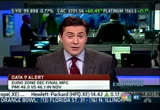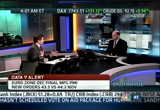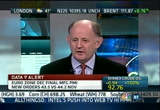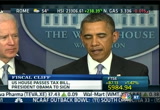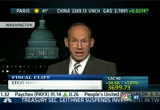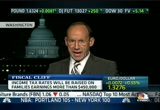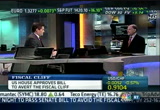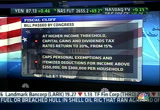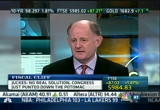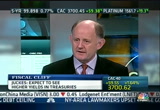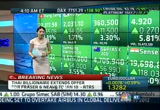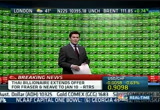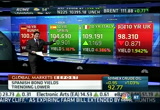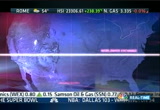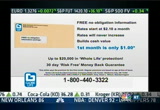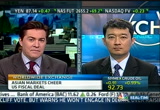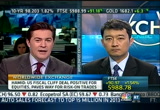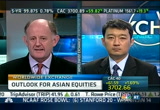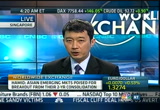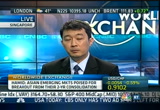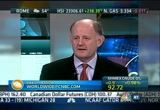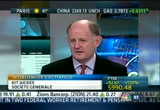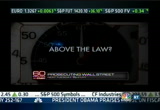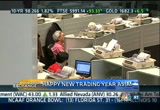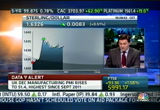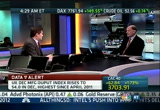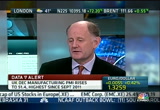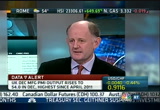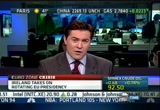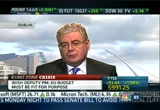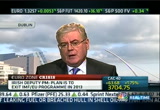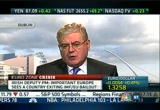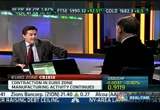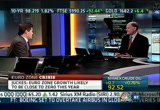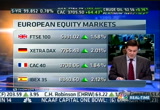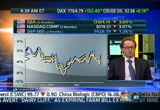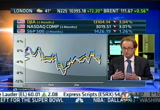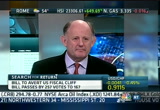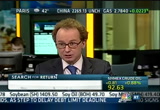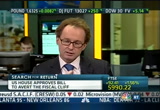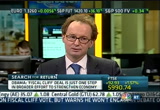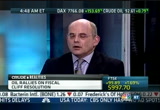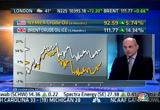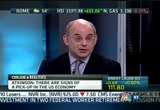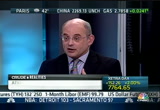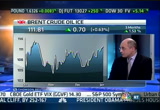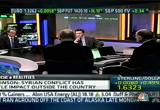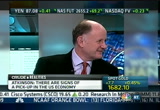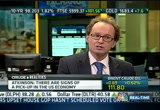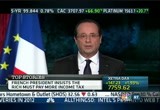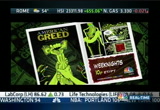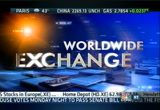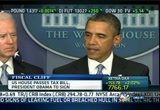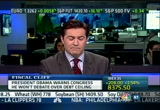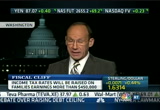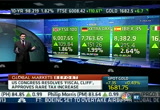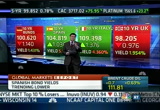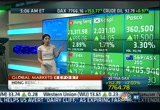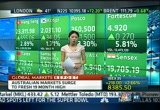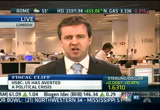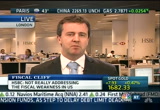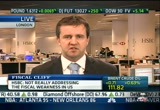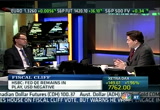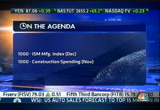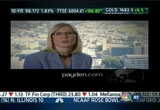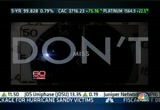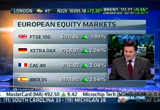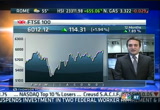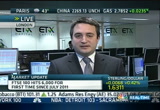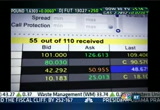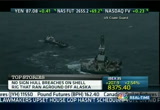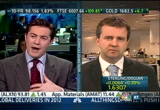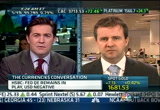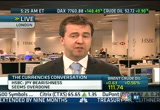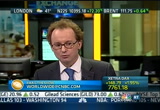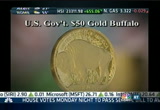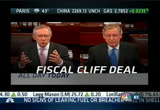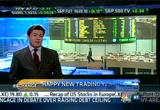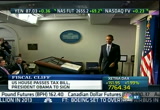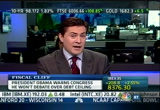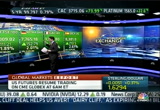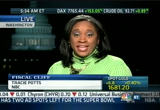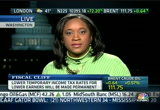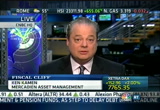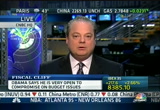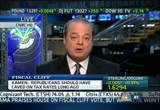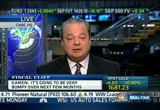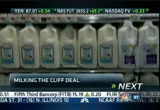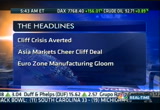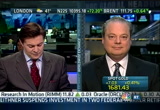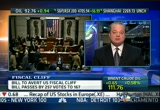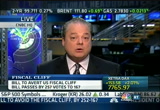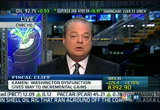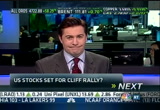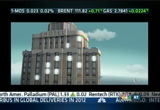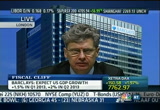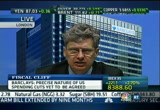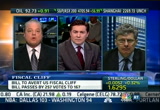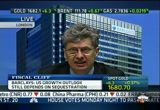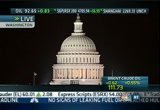tv Worldwide Exchange CNBC January 2, 2013 4:00am-6:00am EST
4:01 am
u.s. house passes a bill to avoid the fiscal cliff, but president obama warns us he doesn't want to go to the brink in the next fight over the debt ceiling. >> i will not have another debate with this congress over whether or not they should pay the bills that they've already racked up through the laws that they passed. the budget deal boosts asian stocks in hong kong and australia hitting 19-month highs in the first trading session of the year. european equities also share a deal out of washington despite more gloom from the eurozone. manufacturing has continued to contract according to the latest pmi. okay. 2013, a warm welcome to viewers of "worldwide exchange." my special families to a family called the wards. thank you for hosting my family over the new year. personalities out of the way,
4:02 am
eurozone, still looking glum despite the market reaction to the fiscal cliff deal this morning. to recap, the eurozone december following manufacturer pmi, 46.1, the flash was 46.3. the final output index, 46, weaker than the 46.1 flash, 46.1 in december. and the november number for orders 44.2. the eurozone in sort of the slowdown in the eurozone factory activity deepening in december. new orders falling. in spain it was worse, as well. let's get reaction to that despite the risk on sentiment. we have global head of foreign exchange with us for the hour. happy new year. >> happy new year to you, ross. >> good news, we'll get to that. reaction to the economics in the euro, as you were. >> a reminder, europe can be
4:03 am
somewhat close to zero this year, output same as last year, maybe down if we get a decent follow in from the states, maybe clawing back to zero. with the gap between the two, the divergence is the greatest that i've seen since the start of the euro in the '90s. so this is not improving. >> economic divergence is great. market performance is something entirely different. >> yeah. money has to go somewhere. investors, investors around the world are looking for yield. the u.s. investors are looking for yield most of all. they sell the dollar, they buy stuff with yield. this morning, if -- if italian government debt has more yield than other things, then apparently that's just the job. so the euro is likely to go up to 1.34 against the dollar in this move. dollar/yen higher, equities higher. a risk on morning without anybody overthinking it. >> exactly. with the yields being slightly lower than they were this morning as part of that move. the house of representatives passing a bill late on monday to
4:04 am
prevent huge tax hikes and spending cuts, hoping us avoid the fiscal cliff. the vote was 257-26. house speaker john boehner -- 257-267. house speaker john boehner voted. the bill raises tax rates for families making more than $450,000 a year and lets the payroll tax cut expire but delays military spending cuts by two months. speaking after the vote, president obama thanked congress for approving the deal. >> the sum total of all the budget agreements we've reached so far proves that there is a path forward. that it is possible. if we focus not on our politics but what's -- but on what's right for the country. the one thing that i think hopefully in the new year we'll focus on is seeing if we can put a package like this together with a little bit less drama, a little less brinksmanship, not
4:05 am
scare the heck out of folks quite as much. >> the bill sets up the next fight in around two months when the spending cuts are set to take effect and america hits the debt ceiling. treasury secretary geithner's taken steps to delay the date by halting investment in two government worker pension funds. the president is vowing to avoid a repeat of 2011 saying he won't engage congress in a debate over the debt ceiling. >> we can't not pay bills that we've already incurred. if congress refuses to give the united states government the ability to pay these bills on time, the consequences for the entire global economy would be catastrophic. >> nbc's steve handelsman has been following the latest developments out of washington. >> reporter: the democrats and republicans up here on capitol hill, the president down at the white house, all know this may have been a magic moment. as tough as it looked, as awful as it looked to many in the u.s. and overseas, this might be the
4:06 am
most cooperation we see on any taxes and spending dispute, at least in the next few months. just getting this far has been a long journey. president obama, who incidentally speaking of journeys came back here to washington for this fight and is already headed back to where he was which is a family vacation in hawaii. he campaigned for the better part of a year, won the presidency, promising tax hikes on individuals making $200,000 a year and more, and settled for double that, $400,000. congressional republicans have held the line for two decades on tax increases, yet a majority of republicans in the senate and big group in the house voted tonight to increase those taxes on the wealthiest americans in return for not being blamed by the rest of america for taking the nation off the fiscal cliff and keeping it there. so the president looked ahead to
4:07 am
more deals on taxes and spending saying what we need is to put a package like this together. with a little less drama, he said, less brinksmanship ton scare the heck out of folks quite as much. good luck on that. just ahead are not only the fights over the budget, over these automatic spending cuts, the so-called sequester which they'll relitigate again, but over the debt limit. three different fights, and it looks like it's going to be bitterly fought here in washington. i'm steve handelsman on capitol hill. >> summed it up nicely, kit. >> yeah. i think it's true. you know, the debate about how you pay the taxes in order to meet the spending that you've agreed is all fine. but at the heart of this is how much are you going to spend as a government. and if you were a right wing republican, that's what your biggest objection is, too. you don't want to pay more taxes. the reason is you think the total amount of spending should be cut.
4:08 am
>> yeah. >> and i -- you know, the idea that they're not going to have a rowe about it sense nonsense cal. >> how will that -- we get this reaction today, we'll run through the market moves in a moment, but strong moves. and -- so that's the kneejerk reaction. when do we worry about the bigger debate? the. >> in a few weeks. the reality of markets left over from last year is that with so much money left in the system and with yields so low in any safe asset with so much quantitative easing easing through is the need of investors on january 2 to put money to work earning some kind of yield is probably the dominant force today, tomorrow, this week, next week. but everybody is going to be looking forward anxiously saying that's fine, i have to put my money to work and hope that this delivers -- >> are we getting closer to further downgrades on the -- >> i think at some point, if i were a rating agency, if i were
4:09 am
worried about u.s. levels, an enormous amount of debt over the next five years. i think the ratings agency -- >> then will it matter? >> i don't think it does matter in the sense that the u.s. is not a smaller country. the u.s. has shown that, you know, if they run policies designed to weaken their currency it goes down a little bit. if they run policies designed to make the debt less attractive, foreign and central banks have to buy it. if i were the u.s., i would ignore the rating agencies 100%. on the rating agency model of creditworthiness, i think they're found react at some point. >> there was growth impact on the u.s. economy. >> yeah. if we don't get a complete train wreck on the debt ceiling and on the spending cuts, i think you can add half a percent to whatever growth forecast you had in your pocket for 2013. so something between 2% and 2.5% instead of below 2%. with a growth rate that in the second half of the year could be above 3%, which, you know, that's millions of miles away
4:10 am
from what we're doing here. >> what does it mean for the dollar? >> in the long run, i think it's positive. the long run, this brings closer the day when the federal reserve raises rates. it brings higher treasury yields. it shift the balance between fiscal and monetary policy. right now, it doesn't do that at all because the fed is not going to change course one iota just because of this. >> can the market still be driven by yield rather than anything les? >> raisk on, risk off, the need of investors to put money to work as opposed to relative economic performance. and until the economic performance has an impacted on capital flows, on interest rate expectations, it's not going to matter. and good u.s. data is bad for the dollar. perversely, the only thing it's good for is the yen. >> we'll get into that in a second. if you have thoughts or comment, e-mail us or tweet
4:11 am
@rosswestgate. and we have more from singapore with the first "global markets report" of 2013. happy new year. >> happy new year, ross. asian borses kicked off the first trading day of the year on a bright night, cheering the fiscal deal. the hang seng touched a 19-month high while the h share index jumped 4%. chinese financials led the chart along with industrials and commodity place. the hang seng has chocked up a stunning 3% gain last year. tyex closed up 1% supported by gains in technology shares. mean wheel, south korea's kospi ended near a nine-month high, brokerages led the rally on expectations of higher trading volumes this year. samsung electronics jumped 3.6% to another lifetime high. pasco up more than 3% boosted by upbeat chinese data. the steelmaker leading a consortium to buy a 15% stake in a canadian iron ore firm.
4:12 am
in australia, optimism over the u.s. sent the asx 200 to a 19-month high. hopes of china's recovery. the ceo sounded a warning bell saying the current rally we're seeing, iron ore prices won't last. and china's official pmi data showed manufacturing activity expanded at a modest pace in november, matching december's seven-month high at 50.6. we'll see how chinese stocks reacted when the market reopens this friday. and that's also when japanese markets come back from holidays. meanwhile, india's pmi jumped to the highest level in six months. the sensex gaining about .7%. back to you. >> thanks for that. you would see the extended offer until january 10. in europe, just over an hour and, what, ten minutes into the trading day 9-1. on the front foot this first trading day of the year, pretty good gains for the year.
4:13 am
the ftse was an underperformer along with the ibex. up under 6% for the year, up 1.5% this morning. the xetra dakotas up nearly 9.2%. the ibex down nearly 5% last year. this morning, up 1.78%. the mootsy mib up 2.3% as well. it was up 7% during the course of 2012. unbelievable to say we're in 2013. yields in spain and italy low. italy 4.38% now. we started off at around 4.49%. show the scale of the drop. yields in spain, 5.18%. we're starting from a base of around 5.23. so good news there. no surprises to dwreelds in germany and the u.k. p mi -- sorry, manufacturing pmi coming out in the u.k. at 9:29. in other words, work it out around 16 minutes from now.
4:14 am
the yen down against everything. dollar/yen 87.12 at the moment. we have been up to 87.35. 29-month high. the dollar down against everything else. sterling/dollar, strong, 1.6320. and euro/dollar up to 1.3279. over 1.33. we'll see if it can get to 1.34. gold and oil also stronger on the move. crude hitting multi-month highs on improved appetite for risk. we've got brent up to 1.1190. nymex at 92.76. spot gold as you see up this morning at 1,681. we see the crude hitting multi-month highs. we'll look at the prospects for oil still to come. plus, new year, new bubble watch. we'll speak to jpmorgan asset management about why money printing by the fed and record corporate borrowing could spell trouble for investors. also, plenty of asian equities enjoyed bumpy gains
4:18 am
happy new year. japan and china missing out as they're closed for public holidays. if you look back at 2012, most asian equities had a pretty good year. india was out performed, up over 27%. nikkei 225 did well, up 23%. most of that came in the fourth quarter when there was a 17% move. this after the government promising to do more to turn the sluggish economy around. the chinese equity market was the langur, it staged a rebound in december after the release of more upbeat data. the shanghai composite up over 3% for 2012, up 8% in the fourth quarter. sonny hammond is director of wealth management at the economy of market strategy at financial alliance. sonny, thank you very much for joining us. quick reaction. what is this sort of this quick fix deal on the fiscal cliff, what does it mean for investors? >> well, i think that as we've seen on the markets itself, everybody was holding back for buying until we get a certainty
4:19 am
on the fiscal cliff issue. now that we have, a lot of this pent-up demand is coming in and pushing markets significantly higher. i wouldn't be surprised if after the next few days we continue to see because investors have been waiting by the sidelines initially in the second half of last year, they were afraid of the slowing economy. growth worldwide. they were worried about a fiscal cliff. now with these things out of the way, there's only one thing to worry about, the debt ceiling debate. with the solution for the fiscal cliff, the debt ceiling debate issue is kind of a minor thing to them because, look, all of the hurdles are moved to the side already. >> fascinating to look -- i'll mention it there. the nikkei and shanghai up 17% for the nikkei and 8% for shanghai in the fourth quarter. they had -- they've had the -- they had the rally effectively. do those moves get replicated? will they be the outperformers in q1? >> i think asia by and large will be the outperformers in q1.
4:20 am
i think a lot of money has so far been floating around in both the u.s. and -- and in europe. if you look at asia especially over a two-year period, everybody says that asia in 2012 did well, and i agree. did do pretty well. if you take 2011 and 2012 together, consolidate the gains,um see a l-- you will see that asian returns were positive over a two-year period. the money in the u.s. and europe has given asia a miss. i think a lot of moneys will come back to asia because asia is a laggard. i think going forward you can ignore asia. >> okay. do you agree with that sentiment? >> yeah. i think i agree broadly. you know, investors want to put money to work. i think the question i have going the other way almost is, you know, which central bank are going to fight to stop their currencies appreciating, which are going to let the money go in. that seems to me the problem. money's going to either stay in asia or flow in. you know, currency was full on. and someone's going to have to see respond.
4:21 am
>> i toltally agree. i think will situation will be a de facto currency war and everybody's going to try and keep currencies from strengthening. we have influx of liquidity, property prices going higher, the uae coming in and limit property loans to foreigners. all these things will happen, i think, but problem is i think it's inevitable that liquidity moves back into asia. we've seen liquidity sloshing around everywhere. i think they're looking, as you correctly pointed out, for a place to go to. i think it's clearcut that asia will be the beneficiary of that. emerging markets by and large. >> would you -- how would you break it up? because obviously it's going to be out-- there's outperformers. how would you break up the sabre an markets? >> i think there is a story still to be told for the bric countries. i think the bric countries are one of the bigger laggards especially for russia and china. india did outperform but in 2011 it fell 40%. although it's gone up about 20,
4:22 am
it's still net-net down over a two-year period. there's still a story to be told. i think the market will focus on, okay, we've gone through about two years of consolidation, the world economy's in a downturn. what happens when the world picks up? markets will look forward and look ahead to discover what will happen in the next 12 months. if you look in the next 12 months and as people say we expect the world economy to restart its engine again, where do we put our moneys. i think people are willing to put more in emerging markets asia, vis-a-vis europe and maybe the u.s. >> how impressed are you by the new chinese leadership? there seems to be -- we have this rally predicated on the leadership change and the comments coming out. do you think they'll be able to deliver what they're saying? >> well, i think they have to, and i think more importantly everybody forgets that china is undergoing a transition period, moving away from export-oriented growth to that was domestic growth. i think it will result in the
4:23 am
so-called end of the double digit growth era back to a high single digit rate of 7%, 8%. it's good because it makes growth last over the longer term. people tend to worry about the slowing in growth, but people fail to understand that this is actually something which will maintain growth over the long run. >> okay. thanks for that. good to see you. and happy new year. >> you're welcome. happy new year to you. >> from financial alliance. we talked about asia market, what about currencies? the yen continues its weakness. does that -- is that -- >> here's the thing. >> keeping it from being strong? >> yes. we've sold the yen on the basis that a new administration's going to come in and do something. so far they've not done anything. and we're looking at each other saying, well, they've made such loud promises, they're bound to do stuff. japan, japan needs much easier monetary policy. they've been stuck in deflation for as long as i can remember
4:24 am
pretty much. now, you know, they've had very little growth. they teach lessons to the rest of the world. i think they've got themselves into a corner where they have to print money, intervene in the currency market if necessary, maybe come up with a flaw target for dollar/yen, something like that. if they manage that the yen's going up to 100. if they fail, we've gone a long way on hope. >> we have. >> we can't stay here, i think, is almost -- you know, what i think we'll hear. i think we'll be back in the mid '70s or up at 100 in six months' time. i think we'll be up. i think there's a commitment and a amend to act. >> do you think we will get a lot more from the bank of japan under government direction? >> i think they've got to. i think they've reached a point in history where they have no choice. they -- the economy's in a mess. >> all right. let's remind you what's on the agenda in asia tomorrow. the takeover of a singapore conglomerate f & m in the spotlight as overseas union enterprising's $10.7 million
4:25 am
offer expires. in news, we mentioned a few minutes ago, as well, a thai billionaire said he would extend the rival bid to take over the country until january 10. on the economic front, hong kong will post its november retail sales data. analysts expect a rise on the back of domestic demand. and on friday, we get the services pmi figures from china and india. meanwhile, eurozone manufacturing in the doldrums. will we see a similar picture in the u.k.? pmi for the british isles due out in a few moments' time. we'll be right back.
4:28 am
with the late night vote the u.s. house passes a bill on the fiscal cliff. president obama warns he doesn't want to go to the brink over the next fight over the debt ceiling. >> i will not have another debate with this congress over whether or not they should pay the bills that they've already racked up through the laws that they passed. >> that budget deal boosts sabre an equity. stocks in hong kong and australia hit 19-month highs in the first trading session of the year. european cheered the deal despite more gloom from the eurozone where manufacturing activity has continued to contract.
4:29 am
that was manufacturing pmi. we have similar figures out of the u.k. now. u.k. manufacturing pmi surprisingly up to 51.4, the highest since september. it's from a revised 49.2 in november. much better than the 49.1 poll. sterling already up strong against the dollar this morning. we'll see whether it gets another kick. there the output index 54 in december. the highest since april, 2011. it's 50.5 in november. so manufacturing or factory activity jumping unexpectedly. now going its fastest pace since september, 2011. the upturn taking on the 50 mark separates growth from contraction. the first time since march. and breaking with poor official data which showed a 1.3% fall in factory output for october. we have more.
4:30 am
sterling's up strongly. what will this do? >> as a general rule the economy's not strong. the budget deficit's big. the current deficit's huge. not a lot of people are fans of it. it's broken a triple high. your trend for analysts must be excited this morning. to the best levels since 2011. i guess 1.65 is the next obvious stopping point. people are underinvested in sterling, and this news is very good even if we're going to have take two steps back and say, you know, the divergence between the official data on industrial production is -- >> it's worth pointing out when we get the print for quarter, we expect it to be -- well, i think there's a con sense us it's negative just about. >> yes. employment's well. official data and production are awful. we'll get even more confused. i think the u.k. economy's trundling along and the currency's not as overvalued as others. >> what does euro/sterling do? >> i think euro/sterling's on a
4:31 am
five-year trade lower. i think -- i think it does go lower this year. in the next two weeks, i think both euro and sterling do better against the dollar pretty much in tandem. >> yeah. there is this view that u.k.'s heading for its own downgrade. it's going to lose its aaa status. >> yeah. we have more of -- the u.s. is the world's number-one reserve currency, has natural forced buyers of its bonds. and you know poke its nose at the ratings agencies. i'm not sure the u.k. can to the same extent. >> if you're saying there's a yield story there and you want a relative safe haven, then guilds are 1.9%, better than, you know, other things yielding less. >> yes. >> if you want that relative security. >> and we have relatively higher rates. we will continue to have some. when i go to investors about sterling in london, i can talk to private banks all over the west end who have wealthy
4:32 am
individuals looking to "fast money" into the pound. and shows who want to go to the pound because i think the credit rating's out of control. i guess over last year and probably going forward, the private sort of wealth money, flow of safe haven money into the u.k. dominate ovs over time but tell continue to be bumpy. >> yeah. meanwhile, the politics in the u.k., i mean, as we watch what's happened with deficit reduction plans and the obr's forecast, does that wane -- >> we continue to not hit our deficit reduction plans and debt reduction plan. we talk, we talk a tougher fiscal story than we deliver in terms of debt reduction. we also stand up and say, look, this is the trouble with going down an austerity program is you have an economy that doesn't grow and you don't improve much. we muddle there. this could be the year when domestic politics becomes a big issue if the government coalition starts to fall apart. but otherwise, you know, our
4:33 am
politics is muddling along. rates are at zero. bank of england's buying gilds. >> would the bank do more or not? look at the numbers, you might think not. >> not yet. since there's flow chance of them going the other -- no chance of them going the other way, there's a skew that says if they feeled need -- feel the need to, watch it in quarter. >> irish manufacturing data showed continued expansion for the 10th month in a row at 51.4 in december. down from november, 51.4, amid slowing output amid new order growth. recovery under the spotlight. it takes on the rotating presidency of the e.u. steve spoke to the country's deputy prime minister and asked about dublin's plans to exit the e.u./imf support program and the chances of ireland brokering a budget deal during its pregnancy. >> it was disappointing the agreement wasn't reached in november. the president is proceeding with
4:34 am
having discussions with member states. we expect that in and around february or certainly the early part of the year that there may be new proposals for a european budget for the next seven years. i think it's important that the european union has a budget that is fit for purpose. member states have given the european union a lot of additional competences over the past number of years. and it's important that we have a budget which is capable of delivering on those. and in particular, delivering on the initiatives that the european union needs to take to get the european economy to grow, to create jobs. areas like research, for example, the common agriculture policy. these are areas that need financial support and need the stability of having a budget secured for the next seven years. >> let's move to ireland if we may, as well. we talked a lot about the u.s. fiscal cliff recently. according to breaking views, 5% of gdp will be the fiscal consolidation up to 2015 in ireland.
4:35 am
you c you can ill afford the terms of the bailout. you need a rejigging, don't you? >> yes, we need measures that make the irish debt situation more sustainable and that help ireland to get out of the program. our plan is to exit the e.u./imf program in 2013. we are making progress. we have by the end of 2013, we will have completed about 85% of the budget adjustment that is required. the irish economy has returned to growth. it's small growth, still fragile. we are seeing some recovery in the domestic economy. we're seeing some turnaround in the property market, and we've seen improvement in retail. but it is still very fragile. and of course, it is very dependent because we are very much an export economy. it's very dependent on the strength of both the european and the global economies, as well. and that's why again, it is so important that we see growth in
4:36 am
the european economy and why ireland's presidency of the european union will be very important to promote measures that will encourage growth in the european economy which will help our export situation. >> sir, you're stuck between a rock and a hard place. you want to go back to the international markets and raise money and release shackles from the troika. yet, if you ease off on the austerity program there's a chance the markets will flinch and say actually the yield are too low and send them up again and limit your ability to access markets. you're almost damned if you do and damned if you don't, sir. >> we saw some return to the market in 2012. so in a way we're already returning to the markets. we need to continue that in 2013. i think what needs to happen is we need to see the budget consolidation measures coupled with growth measures. we need to see -- the biggest challenge that ireland faces at the moment is our level of unemployment. particularly the level of unemployment among young people.
4:37 am
that's why we need to put the emphasis much more now on the measures that are required to encourage growth, to bring about job creation. and that's why i think it is important for europe, not just for ireland. it's important for europe also that there is a winner. that there is a eurozone country that emerges from a program that achieves growth and recovers. ireland is certainly the best candidate for that. >> all right. that was steve conducting that interview. we'll look more at the eurozone. we have pmis, we spoke it this earlier. deepening contraction on the manufacturing side. and spain now down 20 months in a row for their manufacturing contraction. and weaker, 44.6 in december from 45.3 in november. and yet euro strengthening, the dax was up, what, nearly 29% last year. up another 2% this morning. there's a massive divorce between asset prices, eurozone
4:38 am
asset prices, and eurozone economy. >> it's terribly hard to avoid concluding, you know, europe, the new japan as a sort of january 2 conclusion from that. the europeans really need to look at what japan has been through over the course of the last 20 years and avoid making those mistakes and ending up having solutions the japanese have in place now. you know, if the solution to europe is 30% falls in wages in countries like spain, massive fiscal austerity but also deflation around the periphery that slowly feeds through into weakness at the core, in a currency that's strong in the process, then we're on a path toward i think deflation, mini depression, let's be nice about it, for -- >> i mean, spain and greece, it is a depression. >> a depression there, but across the piece. and if that's the best that we can hope for for europe, that's -- you know, that's very, very depressing. so, you know, they do need -- i mean, they need a much, much,
4:39 am
much more monetary accommodation quickly. >> let's recap where we are in the currency rates. euro/dollar has been up this morning to 1.3256. dollar/yen, 87.08. the sterling/dollar 1.6325. december manufacturing pmi 51.4, stronger than the poll of 49.1, dollar/swiss franc, steady, switzerland is closed today. on the bond markets seeing yeelgds come lower in spain and italy. nudging higher for bunds and gilds. equities to remind you, ftse up 1.5%. 2% for the xetra dax after 29% last year. the cac 1.8%. the ibex 8% down for the year last year 4.7%. and that is the backdrop as we bring in tom elliot, global
4:40 am
strategist at jpmorgan asset management. happy new year. u.s. equity markets negative in the fourth quarter unlike those in shanghai and nikkei which were up sharply. was that just a fear of the fiscal cliff and do we now get a rebound as a result? have we got this temporary deal? >> there's a combination of that and obviously nervousness has been existing throughout the whole of last year that the u.s. profit margin psych sell rois i rolling over -- cycle is rolling over. we have confidence that equity returns will be positive next year, this year, rather, and we're overweight in many of our portfolios. >> you're -- that was the big play sort of in the first half of last year. a lot of people changed their mind coming into the third and fourth quarters. >> let's look at fundamentals. one can worry about profit margins and fiscal cliff until you're blue in the face if that's the expression. let's look at the fundamentals. you've got an improvement in housing data. you got two consistent quarters
4:41 am
of positive growth within household consumption. now hopefully the nervousness surrounding the fiscal cliff that lead to the weak consumer confidence number will work its way out of people's minds. so that resilience in household spending that we've seen recently will reassert itself and drive the economy continued growth. >> is this call you're making now -- i say this because you look at quarter, the dow down 2.5%. the dax up 4.5%. shanghai up 8%. you know, sharp -- >> it was a risk on quarter last quarter. >> not for u.s. stocks it wasn't. >> well, everything's relative. sorry, you did start comparing to get us out of the market. i'm taking on this field. >> yeah. >> why did europe help, the banks. our r eurozone banks -- are eurozone banks going to continue outperforming? if i'm interpreting correctly, the eba came up with 4.5 trillion euros of bad debt that may yet have to work through european bank system. so it -- so on a relative basis,
4:42 am
i think the u.s. is still growing. does look still quite attractive. within a backdrop of not really attractive markets. if you look at economic fundamentals. you in this may change in the second half of next year. we may have a full-on, let's go for the cyclical stocks, let's look ahead to the next global upturn. it's premature. because it looks wonderful day to day, it's premature to see it will last for six, seven months. >> i think the issue is if the u.s. grew 3% this year and europe grew at 1%, say, then i think european asset markets might outperform dramatically because one would be spectacular. if the u.s. grows at two and n change and europe doesn't grow, if that gaps that wide, you get catchup because everyone wants to switch. but you don't change the overall map. >> but growth wasn't a driver in 2012. >> no. many's the driver all the time. the driver is that between
4:43 am
central banks with foreign exchange growing and central banks buying their own debt at more a pace, you're putting money into assets. and the rest of us who have got, i don't know, insurance contracts and pensions and savings and children to finance, we are desperate to get some yield. and it's probably true to say, you know, once some sectors in europe had been annihilated relative to the u.s. that people -- >> yeah. the base they were coming off, right? >> yeah. sure. >> always the point. you make this point about profits. and kit makes the point about central bank actions. so what is the -- what's the bigger driver out of the two? >> politics for this year. but -- >> well the delivery of that -- five years. >> it's going to get so lively on the political front. to cover off those points, we believe that profit margins will remain high. they may have peaked but we don't think they'll shrink. globalization, weak unions, et cetera, et cetera.
4:44 am
>> they maintain their share of gdp, in other words -- >> capitalists retain greedy share and labor doesn't, which is sad from the labor point of view. but that's how it goes. >> yeah. >> but going back to politics, i think this year in the euro front, we're going to have germany really focusing its own attention on does it having declared its intention, i'm assuming merkel's trip to than last year and her general -- to athens last year and her general demeanor has been to fully back the euro project along with the ecb. tell crack as it becomes -- will it crack as it becomes apparent that they will not get quid pro quo the political union they want. another issue will continue to be the fiscal cliff. a third one is japan. we've yet to see an independent central bank in recent decades being, if you like, taken back into the political fold in the way that the new japanese government is suggesting it
4:45 am
should be. which if it persists, if it raises the inflation target from 1% to 2%, if it works closely with the finance ministers as the japanese government has suggested it wants to, then we could see very much weaker yen. and japanese stocks really do very well on the back of that. so i'd say politics is going -- is the new sort -- >> japanese version of the "ken and eddie" show. >> i don't know what that would translate into in japanese. >> i've got no idea. is that -- do you think that is what's going to happen? you were saying you thought they were going to have to do something. would you bet -- you look at the nikkei up 17% in the last quarter. lots happened. but there's potential for a lot more. >> my knowledge of -- of japanese politics isn't so great. >> no. >> the indications are that that is what is about to happen. certainly that's what the market's betting on. i couldn't -- >> yeah. >> give a view.
4:46 am
4:49 am
i'll show where we stand with brent and imex. both prices up along with other so-called risk assets. nymex up to 92.65. brent trading below 112. and we have neil attkisson with us. i hope you had a good break. >> you, too. >> expected reaction in the oil markets to what was announced in washington last night. before christmas, number of guests said this would be the year where we're going to see a sharp divergence between in the -- in the spread between nymex and brent as we get more shale oil coming on. that's going to have a big impact. do you see that some i had people talk of target of potentially $50. >> i think $50 is perhaps extreme. what is happening in the u.s. is that, yes, rising u.s. domestic production, getting back to levels not seen for 20 years or
4:50 am
so, but also rising production in shipments from canada. so there's lots of supply available to the u.s. market, meanwhile, on the demand side of the balance, u.s. oil demand in 2012 looks as if it was down on 2011, very weak. it's unlikely to be a very exciting story as far as demand is concerned in the u.s. in 2013. you've got downward pressure on the u.s. domestic prices. we have seen i think in the last few weeks heavier canadian grades sold below $50 a barrel. but they are low-quality crudes. but your previous guests are right that directionally we should see the differential between brent and wti widen gradually during 2013. whether it would get down to a wti price of 50 versus a brent price of 90 it 100, thus $40 a barrel, that's -- >> that was the extreme forecast predicated on various things happening like the economy
4:51 am
suffering. so tom elliot's still with us. tom, you were talking up the u.s. economy, right? you're talking, what, annual -- growth forecast of what sort of range do you think? >> it's modest. maybe one, maybe 1.5%, bear in mind, we've already been told we're going to have $160 billion of payroll taxes. that will impact on some consumer sentiment. >> sure. >> the point is it's growing relative to the rest of the world. this does mean more oil consumption. i think what's impressive is that we are actually seeing more output coming through. i'm not sure that prices will necessarily rise that much on this increasing consumption. but i see no reason to believe that energy prices will fall. >> well, the thing about the u.s. is that the u.s. is actually becoming more energy efficient. and there is legislation in place over the next ten years or so that vehicle efficiency standards, for example, are going to improve. mileage per gallon standards are improvi improving. we will see the economy growing, you're right.
4:52 am
don't forget in the gasoline pool, there's more biofuels being used. the link between gdp growth and oil demand growth is not actually going to be that robust. >> i suppose the surprise, thinking through the numbers, the u.s. is not going to grow faster this year than last year even if you're optimistic. europe is not going to grow much. the global economy's going to trundle along. forget nymex which has had particularly american problems. what are driving non-american oil prices to hold these levels? >> here we go. we're right about the economy. i think we're happy about the economy. most analysts expect global oil demand growth in 2013 to be less than one million barrels per day. normally the tendency is in the past few years that we start out with a figure for growth. we tend to hack it back. >> yeah. >> as relatively poor economic statistics from the real world gradually emerge. now the worrying sign for 2013 is we already think it will be
4:53 am
less than a million barrels a day oil demand growth 2013. we see lot of supply, north america, brazil, looking at supply growing from other places. how prices have held up, particularly for brent, the international benchmark, is the role played by opec and the role played by the middle east producers to ensure that the price for current doesn't slide below a figure which nobody knows exactly what it is, but experts believe it's in the region of $90 a barrel for brent. some people may give you ay dif. it's critical because the budgets for countries are based on significantly higher oil prices than was the case a few years ago because their domestic spending has increased sharply, partly as reaction to the arab spring. but also because of rising population. the key would be if the economy -- the economy doesn't perform well in the first part of 2013 and prices start to slide for
4:54 am
both brent and witi is the backstop is the opec producers. they need the money. >> i have a question to quote a band from the '80s. they had a line, what if all the little wars start holding hands. in the middle east, what is the political premium in the current oil prices coming in from iran, what's going on in syria, i know it's difficult to judge -- >> i think there's very little now because the syrian problem has been going on for well over a year. it's impact on the real world of oil supply and demand is almost nil. the -- the israeli round situation which -- the israeli/iran speculation, there was a great deal of speculation about the con florist ahead of the u.s. election, that seems to have gone away for the time being. the market seems to have absorbed the fact that it was exporting far less oil. there's been more supply from saudi arabia. more supply from iraq which has
4:55 am
kept the market roughly balanced. stocks are at a reasonably high level also. so what we're waiting to see is what happens in the rest of the world as far as demand is concerned, how it progresses in 2013. and the reaction of suppliers who need prices to remain relatively high to meet their budget expectations. that's i think going to be the most something aspects of the oil market in the first quarter. >> i hear you telling me that opec needs prices to stay high and they have a fair amount of power. but i think global growth's got to be stronger to hold overall oil prices up. if you have how -- people talk it a growing gap between crude and -- between brent and nymex, i think that gap gets held down by the topic coming down. i know nothing of -- >> no. you may well be right. and there does come a point where the ability of the produce force keep the prices at the levels they actually want is limited. they can't -- they can't be king
4:56 am
knute forever. they need higher prices. saudi arabia must definitely -- it most definitely does as do the oil other prices. 2012 for them was the best year in history. the brent price average below $112 a barrel. for them it's happy days. >> tom, what do you do with the oil commodity space this year? >> what did we do on commodity -- >> what do you plan to do with commodity space this year? what's your -- >> the overall fundamentals look good. if we get global growth including emerging markets going 3%, 3.5%, this that does represent increased overall demand for stuff in commodities and what goes into making stuff, whether physical goods, energy, whatever. man -- never underestimate man's ability, though, to use substitutes, to increase production, and eventually prices adjusted. we do believe in the super cycle. we do believe there's more to go. but super cycles don't last forever. it's a question really of trying
4:57 am
to look for which indicators are the ones that totally were at the end of the super cycle. i think they alley-oop -- they'll come from shale, gases, i'm getting my energies -- yes, shale gas is the new substitute possible for high oil, i think. so we're looking for the evolvement of substitutes and better use of existing of commodities. that may herald the end of the super cycle when we get a number of these coming on. i think we're some way away. >> all right. tom, stick around. neil, thank you. happy new year. kit, good to see you, as well. thank you very much. kit dukes from saus is state jernl. francois hollande isn't backing down on his promise to back up top earners. the move was blocked to increase income tax at 75%. in a national address last night -- sorry, two nights ago, hollande insisted taxes must go up but steered clear of specifically naming the 75%
4:58 am
5:01 am
exchange." i'm ross westgate. these are your headlines from around the world -- with the late night vote, the u.s. house passes a bill to avoid the fiscal cliff. but president obama warns lawmakers he doesn't want to go to the brink the next fight over the debt ceiling. >> i will not have another debate with this congress over whether or not they should pay the bills that they've already racked up through the laws that they passed. >> that budget deal boosts asian equities. stocks in hong kong and australia hit 19-month highs in the first trading session of the year. european stocks also cheered the deal despite more gloom from the eurozone where manufacturing activity has deepened its contraction. okay. if you just joined us, particularly stateside, happy new year to you. warm welcome to 2013 here on "worldwide exchange."
5:02 am
so the house of representatives passing a bill late last night to prevent huge tax hikes and spending cuts, helping the u.s. to avoid the fiscal cliff. the vote, 257-167. house speaker john boehner voted in favor, although several gop leaders voted no, including the majority leader, eric cantor. the senate passed the measure early on tuesday morning. the bill raises tax rates for families making more than $450,000 a year and lets the payroll tax cut expire but delays automatic government and military spending cuts by two months. speaking after the house vote, the president thanked congress for approving the deal. >> the sum total of all the budget agreements we've reached so far proves that there is a path forward, that it is possible. if we focus not on our politics but what's -- but on what's right for the country. and the one thing that i think hopefully in the new year we'll focus on is seeing if we can put a package like this together
5:03 am
with a little bit less drama, less brinksmanship, not scare the heck out of folks quite as much. >> the bill sets up the next fight in around two months when the spending cuts are set to take effect and the u.s. hits the debt ceiling. treasury secretary timothy geithner's taken steps to delay that date by halting investment into government worker pension funds. the president is vowing to avoid a repeat of 2011 saying he won't engage congress in a debate over the debt ceiling. >> we can't not pay bills that we've already incurred. if congress refuses to give the united states government the ability to pay these bills on time, the consequences for the entire global economy would be catastrophic. >> steve handelsman is following the developments out of washington and filed this report. >> reporter: the democrats and republicans up here on capitol hill, the president down at the white house, all know this may have been a magic moment. as tough as it looked, as awful
5:04 am
it looked to many in the u.s. and overseas, this might be the most cooperation we see on any taxes and spending dispute, at least in the next few months. just getting this far has been a long journey. president obama, who incidentally speaking of journeys came back here to washington for this fight and is already headed back to where he was which is a family vacation in hawaii. he campaigned for the better part of a year, won the presidency, promising tax hikes on individuals making 200,000 a year and more. and settled for double that, $400,000. congressional republicans have held the line for two decades on tax increases, and yet a majority of republicans in the senate and a big group in the house voted tonight to increase those taxes on the wealthiest americans in return for not being blamed by the rest of america for taking the nation
5:05 am
off the fiscal cliff and keeping it there. so the president looked ahead to more deals on taxes and spending saying what we need is to put a package like this together. with a little less drama, he said, a little less brinksmanship, ton scare the heck out of folks quite as much. good luck on that because just ahead are not only the fights over the budget, over these automatic spending cuts, the so-called sequester which they'll relitigate again, but over the debt limit. three different fights, and it looks like it's going to be bitterly fought here in washington. i'm steve handelsman on capitol hill. >> so that's the latest from washington. reaction in the markets has been notable. the ftse and global 300, as you see, up 43 points. on european equities we've seen on the dow jones stock 600 advances outpaced decliners 9-1. ftse 100 up 1.8%. we're above 6,000 for the first time since july, 2011.
5:06 am
last year the ftse up under 6%. xetra dax under 2% on 2012. and helping the spanish and italian markets. the ibex down nearly 5% in 2012. up 2.6% today. the ftse/mib up 3.32%. we'll look at where we are with the core peripheral bond yields. you'll see we started the day, spanish yields just under 5.17%. we started the day today around 5.23%. italian yield starting around 4.9. 4.36. u.k. yields high, and the a half-hour ago -- manufacturing/p pmi, manufacturing/pmi surprising to the upside, 51.4. stronger than the poll of just over 49. on the currency markets, the yen down against everything. dollar $yen at 87.37.
5:07 am
the dollar down against everything else. sterling/dollar 1.63. aussie dollar dollar is, 1.05. and kit dukes who was with us for the first half suggesting 1.34 the target. no surprise as the dollar's down, we see gold and oil prices up. brent at 111.79. and nymex up 92.79. up nearly a buck. spot gold firming up to 1,681. that's where we stand now in europe. not all the markets are open, equity markets are open in asia. let's recap the ones that have started the new year. we have more from singapore. >> thank you, ross. indeed a happy new year for asian borses as they kicked off 2013 on a bright note. cheering the u.s. fiscal deal. the hang seng touched a 19-month high while the eight-share index jumped 4%. chinese financials led the charge along with industrials and commodity place. and the hang seng had chalked up a stunning 23% gain in 2012.
5:08 am
taiwan's closed up 1% supported by gains in technology shares. meanwhile, south korea's kospi ended near a nine- month high. brokerages rallied on the expectations of higher trading volumes this year. samsung electronics also jumped about 3.6% to another lifetime high. pascoag shares up more than 3% boosted by upboat chinese data. the leaders leading a con soberum to buy a 15% stake in a canadian iron ore mine. the esx 200 had the best day in five months to close at a 19-month high. miners shined on hopes of china's recovery. however, there was a warning bell saying the current rally iron ore prices won't last. china's official pmi data showed manufacturing activity expanded at a steady pace in december. we'll see how chinese stocks react when the market reopens this friday. that's also when japanese
5:09 am
markets come back from holidays. meanwhile, india's manufacturing pmi jumped to the highest level in six months. the sensex gained about .6% today. that's all from me. back to you. >> okay. thanks for that. joining us for more, strategist for hsbc and tom elliot from norg asset management. thanks for joining us. the expected i guess reaction to that last-minute deal on the fiscal cliff, what happens next? >> yeah. it's been a happy start to the new year. we've avoided i would say a political mess because republicans in a way were backed into a corner at the end of the day. but you know, has it really resolved the fiscal issue? we step back from the fiscal cliff. but as your correspondent said, we've got lots to organize. and on a two-month time frame, that's quite tight in political conte context. you've seen how long it's taken to get this far in the debate. you know, two months, i think it's a nervous time on the fiscal side. i think this risk on trade, it's a nice short-term play.
5:10 am
but the bigger fiscal issue in the u.s. looks like a real mess to me. >> yeah. the question is when we might, say two months is a long time. you know, for the rest of this week, at least, we can surely ride this. >> yeah. yeah. i think so. that's -- look, no one's going to sell risk on the back of this. you'll say this is as good as we might have hoped for under the circumstances. and so you're getting the pretty conventional reaction in the currency sphere and the equity market sphere, as well. and you know, you're going to chase those yen numbers higher and euro higher and cable, too. conventional, but you know, is it the kind of game-changing story for 2013? i suspect not. >> no. it's just -- look, we talked about it so much. >> yeah. >> for three months. >> yeah. >> and we just need a break. >> oh, yeah, we haven't got anything else to talk about. i suspect we'll be talking about it for weeks. the euro story became dull. we got excited about the japanese election. i suspect that story gets dull over the next month or so, as well. so, you know, i get the sense
5:11 am
this u.s. fiscal weakness, this problem is going to be more problem than you'd like or than i'd like. >> yeah. look, and beyond -- we'll get into there throughout the course of the program. this will be a focus on the economy, the ism today, adp tomorrow, payrolls on friday. so -- is the economic data going to have the fortunately, how is it going to swing? is it going to make us feel better or make it chip away some of the sort of the relief today? >> looking at the market consens consensus, it's dunnbeat. 150,000 on payrolls is not a fantastic number. the unemployment rate surprised us last month, less people were looking for a job. no one's looking forward to improve further this time around. so i would say we're set up perhaps for profit-taking, this risk rally if the consensus is broadly right. and non-pharm has been a lottery in terms of the actual outcome. broadly, i would say the market will reassess and be reminded that the u.s. economy is weak and that the fed is going to keep on pumping in those q.e.
5:12 am
dollars. >> you agree with that? >> unfortunately for you, yes, i do. i agree entirely with what they're saying. i think what we're seeing is a bounce this risk assets. i think for the next six months or so, we're actually going to see outperformance not of high beater growth risks up. it's going to be back to value, perhaps value stocks with good dividends attached. reflecting people's move away from the negative real yields offered by cash and core government bonds. now it may be later on in the year we see a reassertion of your growth, high beater stuff. if we see cyclical upturns and the politics works okay. but i agree entirely. i think this is a short-term rally and risk that i don't think will too g too f-- will g far. >> bearing in mind the gain in 2012, notable underperformers. you know, despite the negative fourth quarter the dow still up 7%. nasdaq up 16. s&p up 13.5%. the dax up 29.5%. nikkei up 23%.
5:13 am
equity players, it's been a good year. >> yes, and -- and that was driven primarily not because of the attractive not of the global economy. it wasn't driven through upgrades to profits, earnings, anything like that. it was driven through the shared ugliness of the fixed income or the main fixed income alternatives. as we move into this year, that ugliness continues. so -- which will be supportive of equities. you then look below the bond and say which is going to be by sectors, by style, which is going to perform. it's more defensive, the bonds that people buy into, they don't like realties or treasuries because of the negative yield. >> that remains. stick around, we'll remind you, we talked about it briefly, we'll remind you of the agenda in the united states. yes, we've got the december ism manufacturing index due out at 10:00 eastern. analysts looking for a reading of 50.5, up from november. also at 10:00, november construction spending. forecast to rise .7%.
5:14 am
i mentioned it, the ftse 100 has gone through 6,000 for the first time since july, 2011. can this new year rally be sustained? we'll have the latest from the dealing rooms in london. ♪ [ male announcer ] how could switchgrass in argentina, change engineering in dubai, aluminum production in south africa,
5:15 am
and the aerospace industry in the u.s.? at t. rowe price, we understand the connections of a complex, global economy. it's just one reason over 75% of our mutual funds beat their 10-year lipper average. t. rowe price. invest with confidence. request a prospectus or summary prospectus with investment information, risks, fees and expenses to read and consider carefully before investing.
5:17 am
these are your headlines. a deal is done on the fiscal cliff, but president obama warns there will be no more arguments over the debt ceiling. shares in hong kong and australia hit 19-month highs as the cliff is averted. and equities rise despite the worsening of factory activity. now normally of course we show you u.s. futures. so you know how the u.s. markets will open. they don't start trading until 6:00 p.m. eastern which is why we are not showing them, if you're wondering. i wanted to recap the message. there isn't a point because they're not trading. so your indication has to go with these, the markets which you see up nearly 2% across the board. the ftse 100 there, 6,011. the first time we crassed 6,000 since, what, july, 2011. joe is head of trading at etx capital with morning. good morning. >> good morning. >> the feel-good factor.
5:18 am
nobody wants to work on january 2. we have to. and if you are going to, you may as well do it with the markets going up. how broad based is the move, how much volume is there? >> it's thin on the volume actually. i think it's a bit of relief that there was a deal done. i'm not sure it's sustainable. and i expect to see selling in the next couple of days. i think the ftse and the dax flat in the situation because the dow was up so much after they closed back on new year's eve. >> yeah. there is the slight bit of catchup. the ftse laggard last year. only up just under 6%. the dax up 30%. is that underperformance going to remain do you think? >> no, i think it's not toward the -- i think the ftse's so dominated by commodity stocks. if they start performing slightly better, the ftse will have a big rise. the dax on the other hand, i think there will be some form of resolution to the eurozone crisis. but it will result in germany
5:19 am
having to bail out and put their hand in the pacts for the rest of the eurozone. that will hit heavily on the dax i think. >> do you go along with that, tom? >> yes, in my world of boring dividend-paying stocks outperforming until we get robust signs of cyclical upturn in growth, i see the ftse as a relatively decent place. i take on import entirely. within that there are sectors that one might feel more secure on dividend payments than others, but yes, i do. >> and joe, you know, a lot, as you said, of the ftse would depend on the commodityited space. so, you know -- commodity space. so, you know, what are you forecasting for that? >> i think -- they've always been underpinned slightly by the hard landing in china. and the fact there's no world growth. we do need some world growth, we can cut and try and doo austeriy to sort out the world crisis. i think there will be growth in the second half or q2 in the u.s. housing market that shows
5:20 am
signs of green shoots. that will push the economy into growth and that is generally good for commodities and should push the sector higher. >> thanks. happy new year. still to come, is it time to rein in the bears on the yen? what's the outlook for the greenback, bearing in mind the outlook for u.s. politics.
5:23 am
in the new york tri-state area up in arms as house republican leader let congress adjourn without voting on aid for hurricane sandy victims. the senate approved a $60 billion measure last week to help with recovery. the house appropriations committee had drafted a smaller $27 billion aid package but no vote is scheduled. new york republicans and democrats are calling the decision indefensible. the u.s. coast guard says there are no signs a shell oil rig that ran aground off the coast of alaska is leaking fuel. the rig encountered trouble on monday during a severe storm. it's carrying 150,000 gallons of diesel and 12,000 gallons of lube oil and hydraulic fluid. once weather permits the plan is to get marine experts aboard to inspect the rig and come up with a salvage plan. the stock in the u.k. up 1/3 of
5:24 am
8%. the u.s. journal indicating a key indicator of sales are expected to top $15 million according to firm polk. last year's sales are on track to hit $14.4 million. pickup trucks were back in vogue in 2013 as g.m., ford, and toyota all launched new vehicles or refresh existing models. as you see, the dollar down across the board apart from against the yen. euro/dollar up to 1.42.45. we have more from hsbc and tom elliot from jpmorgan asset management. clearly the kneejerk reaction is to see the dollar weaker apart from against the yen. how will the dollar trade as we work toward the next set of negotiations on debt ceilings and debt sustainability? >> i think -- it will trade, depending on two things -- how that negotiation seem to be
5:25 am
going. obama seems to think it's going to be easier and we're not going to scare the heck out of everyone. and of course had the u.s. economic numbers are looking. the weaker they are and more to anticipate q.e. being sustained the weaker the dollar will be. they'll be the key drivers. in the background, don't forget europe. the european story out has become dull. that's not to say it will always be dull in 2013. if it raises again, you have a bid back on the dollar and safe haven flow. they're the three angles for the dollar through the next couple of months. >> there's a suggestion that we continue to trade in currencies on sort of a yield safe haven basis. >> yeah. >> if the politics improved in the u.s., though, that should theoretically improve the u.s. fiscal position, the u.s. economic position. when would that be dollar supported? >> it's ambiguous. the fiscal cliff story has been ambiguous for the dollar for the last couple of months. honestly, it's been difficult to trade. it was much easier to trade something like aussie/yen on the
5:26 am
evolution of that story. i think that remains the case. people are scared in a way of trying to second guess what the market reaction on the dollar will be to fiscal cliff developments because it can point in both directions. i know that's -- we always say those economists, but this is a clear example where that's the case. >> politics -- it's had a big impact in japan on the yen, as well. >> yeah. >> 8,735. 29-month high on dollar/yen this morning. which way do we go, fall back or head toward 100? >> i suspect we may be a lone wolf here. we're saying fall back. i struggle with japan because i say what is says changed? expectations have changed, we're expecting great thing from the boj from the new government. but what about delivery? i mean, that's what politics means for markets. what are they going to deliver. boj, new inflation targeted 2%. they haven't even hit 1%. why are we talking about 2%? they're not going do things radical like foreign bond buying. at the end of the day you'll be back in japan, same situation as
5:27 am
six months ago. they're printing more money. that's never weakened the yen on a sustained basis. i think these are levels not today, not this week where we should be looking to sell dollar/yen and looking to sell some yen crosses again. >> all right. thank you very much. strategist and director at hsbc. thomas, a final thought from you, as well. you think politics will dominated. no problem for asset managers. it's hard to quantify into asset prices. what's the biggest political risk for you, the standout one that you -- may not be essential forecast but the thing that may upset the apple cart most? >> i think it continues to be the eurozone. and the main one is perhaps not so much the politics of the periphery, it's the politics in germany. and to what extent germany going to ton bankroll the eurozone project when it's clear that some of it's very large fellow euro countries like france, like italy, are simply not going to engage in, a, the fiscal
5:28 am
rectitude that the germans would like to see and, b, share their political power which must be a prerequisite for germany if germany's going to share its wealth. >> does that come up before the german elections or after do you think? >> i think it's going come up during. i think the -- so neither. i think the german elections will then heighten the issue because a re-elected merkel will want to pursue the goal with vigor. >> tom, happy new year. thanks for joining us. tom elliot from jpmorgan asset management. we'll take a break. still to come, we'll be in washington as the u.s. wakes up to the news the fiscal cliff has been averted for now. what does it mean for investors, taxpayers, dividend payers?
5:31 am
january 2, 2013. this is "worldwide exchange." here are the headlines -- with a late night vote, the u.s. house passes a bill to avoid the fiscal cliff. president obama warns lawmakers he doesn't want to go to the brink in the next fight over the debt ceiling. >> i will not have another debate with this congress over whether or not they should pay the bills that they've already racked up through the laws that they passed. a budget deal boosts asian equities. stocks in hong kong and australia hit 19-month highs in the first trading session of the year. the european ftse 3,600 up as
5:32 am
the fiscal cliff is cheered this side of the pond. if you've just joined us, yes, it's the first trading day of the year. the news we're waking up to is the house of representatives passing a bill late tuesday to prevent huge tax hikes and spending cuts which has helped the u.s. although it's -- it temporarily went over the fiscal cliff. 261-157. house speaker john boehner voting in favor. there were some gop leaders who voted no including the majority leader, eric cantor. the senate passed the measure early tuesday morning. and the bill raises tax rates for families making more than $450,000 a year, let the payroll tax cut expire, with delays automatic government and military spending cuts by two months. speaking after the house vote,
5:33 am
the president thanked congress for approving the deal. >> the sum total of all the budget agreements we've reached so far proves that there is a path forward. that it is possible. if we focus not on our politics but let's -- on what's right for the country. and the one thing that i think hopefully in the new year we'll focus on is see figure we can put a package like this together with a little bit less drama, a little less brinksmanship, not scare the heck out of folks quite as much. >> the bill does set up the next fight in around two months when the spending cuts are set to take effect and the u.s. hits the debt ceiling. treasury secretary geithner's trying to take steps to delay that date by halting investment in two government worker pension funds. the president is vowing to avoid a repeat of 2011. he says he doesn't want to engage congress in a debate over the debt ceiling. >> we can't not pay bills that we've already incurred. if congress refuses to give the
5:34 am
united states government the ability to pay these bills on time, the consequences for the entire global economy would be catastrophic. >> all right. let's show you where we stand at the moment as far as the ftse global 300 is concerned. up 41, 5,144 where we stand at the moment. if we pulled up the heat map, you could see we've been weighted so much to the upside, 9-1, advances outpacing decliners at the moment on the dow jones stock 600. that translates into solid gains this morning for the european equity markets. the ftse up only 6% for the year. but this morning, up 1.8%. 111 points. and we're through 6,000 for the first time since july, 2011. now the xetera dax, the standout performer in europe last year, up nearly 29%. the last quarter up 5.4%. up 2% this morning. we've got the cac up 2%, as well. up some, what, 15% during the
5:35 am
course of 2012. the ibex, underperformer in 2012, down some 4%. this morning up 2%, as well. yields are also being helped as a result in spain of this fiscal cliff deal. you see yields in spain lowered to 5.13%. we started off today at 5.23%. and italian yields 4.32%. quite a steep drop with 4.49 where we started this morning. as you see the impact of doing that deal, a classic risk on move. the dollar is weak across the board apart from across the yen, as well. let's get more from washington. nbc's tracie potts joins us with the latest. happy new year. >> reporter: happy new year, and a happy new year, ross, to millions of americans who are happy that they won't pay higher tax rates. although many of them, in fact, all of them working americans will pay some form of higher taxes this year because despite the fact that the tax rates were worked out, some 98% of
5:36 am
americans, almost everyone will not pay higher taxes in terms of their rates. the payroll tax cut that we had, that extra 2% that had was in our check this year, will not be as of january. so that is an immediate effect that a lot of people will see. what does all of this mean for the economy? it puts off massive spending cuts. it calms the fears to some degree of investors as the markets reopen this morning. the other big issue is there are many americans who will end up paying higher taxes, either that payroll tax or the higher taxes that we're going to see on the wealthy. economist tell us that will put a drag on what's been lackluster growth for the economy. >> yep. thanks for -- what happens now? because they talked about this fight that would -- whether we're going to have a fight or not over the debt ceiling and spending cuts. how do you think, you know, congress is now feeling about that debate that people are going to focus on?
5:37 am
>> reporter: pretty sure we'll have a fight over the debt ceiling. it's coming up quickly. in february, congress will have to make a decision on whether or not to raise the $16.4 trillion debt ceiling so at that u.s. can continue to pay its bills. the president wanted expanded authority to do that without a lot of interference from congress. republicans are going to insist on cutting spending. that was something they were not able to get in this bill. medicare, medicaid, social security, the big growth areas in the federal budget, they're going to have to work that out. that's coming up soon in probably a month. >> good to see you. tracie potts from washington. also joining us, president of mccadian asset management. we did get a deal done. what do you think of it? >> for investors the deal was fine as it relates to taxes. i think it was huge that capital gains and dividend stayed in parity. we didn't get any of the spending cuts. the deal was an easy deal to
5:38 am
make. they basically raised taxes on people that resigned themselves to having their taxes raised. so i don't think that was really the heavy lifting. i think the real benefit here for investors, though, is that we're going to get a lot more certainty around the tax code for sure. and we're going to now move the discussion to the savings if you will, the budget cuts. i think that's probably, you know, although a rocky time ahead, the -- holiday time. revenues are not the topic to talk about. it's about talking about when we're going to save money. >> you said this is the easy deal. they still took it -- they took it beyond the 11th hour. this was the easy bit. >> absolutely. that should give everyone reason for pause. i think the reality is that, you know, the congress that we just came through came through a bitter election. it's mostly the same players coming back in the new congress on thursday if you will. and i don't think the tone's going to be that much different.
5:39 am
hopefully they're not going to wait for the last minute again. i don't really have too much real hope that that won't be the case. but yeah, i think it's kind of embarrassing, actually, for our elected officials to be acting this way because these are not issue that are sneaking up on anybody. you do not need binoculars to see this issue coming over the horizon. >> we talked a lot before the announcement. we talked about dividends and capital gains, profits now. the fact that it's going up to 20 from 15 for those incomes above 400 or family incomes above 450. that's -- how big a win is that? >> i think that's a huge win. as i said, i said on earlier shows that wealth had been convicted and we were just waiting for the sentencing. now we found out it's a smaller part of the ponpulation that's going to be subject to that. the talk that this is small business, it's a smaller group that fall into. that a lot of small businesses, the mom and pop, the candy store, the local restaurant, they're not bringing in the
5:40 am
kinds of numbers that would push them into those type of higher brackets. i think that it was, you know, it's a real win for most people, literally overwhelmingly most people. and i think at one level they got it right, although some people might not agree with me. they raised taxes on money that was going to be saved anyway for the most part. and you know, when -- at the lower levels, people spend money. but people that are making millions of dollars for the most part, it's how much what i would call wood that's on the pile. they're not really necessarily putting that into the economy for growth. so i think it had a way of getting done right. i think there's a victory here for the republicans if you want to call it that by getting the numbers up that high. i think they did a good job for their constituency. although they didn't do a really good job for the talking point about getting spending down. now we're going to be going to that. and i think that unfortunately could be a real bloody battle because it's one thing to take money away from people that have excess money we've been told. but it's another to start
5:41 am
chipping away at real needs and i don't want to say that entitlements are really entitlements, to man people they're the way they get by. the way they live. it's a society we live in. i think it's very hard to start adjusting those things and doing it in a way that we're going to be able to not get people's blood boiling. i think we have to strap ourselves in for a rocky road ahead in the first half of the year. >> i'm interested to see what happens with john boehner. he voted for it, a number of his republican lieutenants voted again. it we'll see his strength going into the negotiations. we'll talk about that. we'll come back to you. stay there. get a cup of coffee. to come, why dairy farmers could be the real winners out of the fiscal cliff agreement and what it means for u.s. growth. ♪ [ male announcer ] how could switchgrass in argentina, change engineering in dubai, aluminum production in south africa,
5:42 am
and the aerospace industry in the u.s.? at t. rowe price, we understand the connections of a complex, global economy. it's just one reason over 75% of our mutual funds beat their 10-year lipper average. t. rowe price. invest with confidence. request a prospectus or summary prospectus with investment information, risks, fees and expenses to read and consider carefully before investing.
5:44 am
if you just joined us, a recap of headlines from around the world. a deal is gone on the fiscal cliff. the president warns there will be no more arguments over the debt ceiling. shares in hong kong and australia hit 19-month highs as the cliff is averted for now. european equities continue their rally, as well, despite a worsening of the contraction in eurozone factory activity. we had the final print of
5:45 am
eurozone pmis today out for manufacturing. they came in worse than expected. the contraction deepening in spain for 20 months in a row. the u.k. was better than expected. in the u.s. the house deal it avoid the fiscal cliff contains measures to avert the so-called dairy cliff. a lot of different cliffs. the agreement extends the u.s. farm bill by nine months. it had been set to expire monday without the temporary fix, dairy subsidies would have reverted to 1949 levels, meaning milk prices might have doubled to around $7 a gallon this year. congress has time to finalize a five-year, $500 billion farm bill that authorizes spending on crop subsidies and food stamps. still with us is ken camen from acadian asset management. away from the farm bill, i raised this before break. just talk about the politics as we now go to talking about spending cuts and debt ceilings particularly on the republican side. you know, has john boehner got sort of voted against in --
5:46 am
although he passed a bill, it's almost -- some of the key gop members voted against him. >> listen, i'm not -- you know, a political expert on the make up of the house, but i will say if you look back at newt gingrich and the contract with america, there are a lot of things his party wanted to be put on the contract with america platform that he didn't. he stood tall and said, listen, you can always vote me out as speaker, but it didn't happen because you need someone better to come along. that they would get the votes to coalesce around someone else. what was he going to do, have it all on him that we were going over the cliff this morning? i think he has a lot of cover because it would have really lasered in on him personally. and there was such an overwhelming vote in the senate that i don't see that he could have done anything else but put on t on the floor for the straight up and down vote. i don't think he'll be pursuant issued but it's not my field of expertise. you know -- go ahead. >> i was going to say, look, the
5:47 am
congressional budget says this bill will increase budget deficits by $4 trillion over the next ten years. obviously if the bill had kicked in we would have got budget savings love we'll save $650 billion during the time period when measured again the tax and spending policies in effect on monday. we're raising, still raising budget defenses here. when -- look, we've got this discussion, we're going into it on that side. when does this become an issue for investors? you know, we -- if we don't get these discussions going, we may get more downgrades from ratings agencies. now the first one didn't make a lot of difference. i don't know when it's really impacts us as long as the world is willing to buy treasury bills. >> true. it's an issue for investors now. two months isn't that long from now where we'll get into this big argument over the debt ceiling. i don't understand, the president said last night that he was not going to engage in an argument over the debt ceiling.
5:48 am
i don't understand that because that's going to be the conversation. it's the same thing that when you're in the long car ride with my dad and he would say if you don't stop fighting i'm heading home. you knew he was not going to do that. i don't understand how you say we're not going to get into a fight over that. i think investors have to look at that. as i said, there's a number of silver linings for investors. one is dividend stocks. dividend stocks which is, you know, it's been the darling of wall street for a while as a way of getting yield outside of the fixed income market in are paying nothing and waiting for, you know, rates to go up and bond prices to come down, people have been scared to go into dividend stocks because they were afraid we were going to get this huge differential between capital gains and dividends and dividends could have possibly went to ordinary income. we're not going to get that now. i think dividend stocks might be something people might want to look at strongly here. we might actually get a -- a nice pop in those. so i think that, you know, there's pockets you have to look at. it's no one market anymore. i think you have to pick your spot.
5:49 am
this is a deal for investors all of 2013. >> all right. ken, stay there. we'll get a final thought ahead of today's trading day. don't forget, the three top stories trading on cnbc.com. equity markets enjoying the boost on the resolution of the fiscal cliff. the temporary resolution. can the deal prompt a longer real? go to the web site for more. and do we need more fiscal cliff? on the web site read more from the ahead of pimco on the failure to reach a grand bargain. and and you're all cliffed out, check in on why 2013 could be set for faster global growth. all of that on the wonderful site that is cnbc.com. will the equity rally extend to u.s. stocks? we're counteding down to the u.s. open when we come back. no u.s. future at the moment. we'll give you a look ahead.
5:51 am
[♪...] >> i've been training all year for the big race in chicago, but i can only afford one trip. and i just found out my best friend is getting married in l.a. there's no way i'm missing that. then i heard about hotwire and i realized i could actually afford both trips. see, when really nice hotels have unsold rooms, they use hotwire to fill them. so i got my four-star hotels for half-price! >> men: ♪ h-o-t-w-i-r-e ♪ hotwire.com >> announcer: save big on car rentals too, from $12.95 a day.
5:52 am
let's remind you what's on the agenda in the united states. we've got december ism manufacturing indices out at 10:00 eastern. we'll looking for a reading of 50.5, up a point from november. also at 10:00 eastern, we'll get november construction spending. it's forecast to rise .7%. joining us for more, julian callow, chief economist at barclay's. ken caiman with us, as well. happy new year. this deal that's been inked in and signed off, what does that mean for the economy? >> it seems in line with our baseline assumptions, ross. i think if you add up the measures that have been agreed, the actual scope of the fiscal tightening concerning the tax increases will amount to about 1% of u.s. gdp this year. now there's still the outstanding issue about spending and the sequestration issue. of course, that is now set to be resolved sometime in february or in early march.
5:53 am
and that could be another .6% of gdp or so. overall it looks like this package, therefore, will be in line with our baseline. and indeed i think many on the street are looking for similar fiscal consolidation amounting to 1.5% of gdp. that, of course, is quite significant. the amount of fiscal consolidation the u.s. had in recent years has been running up to about 1% of gdp a year. so there is a step incremental additional headwind on the fiscal side. but at least thank goodness a lot of the uncertainty has been resolved, i think. >> do you think -- well, around taxes it has. but not about spending and debt ceilings. >> that's right. i mean, we're going to go into those issues. what i'd say is that if you think back to where we were a few weeks ago and the enormity of the fiscal cliff was 4% of gdp, it was unclear how that would be divided up. what we've got, what we know is that, yes, there is going to be 1%, about a quarter of that
5:54 am
fiscal tightening that has been agreed. by the way, agreed quite conclusively i would say by the congress. now there's still an outstanding amount concerning the sequestration and spending cuts for this year which as you say is going to be a thorny issue. there is still uncertainty there. and that could be around .6% or .8% of u.s. gdp for this year. there again there's been agreement on many of the other measures. so overall i think this is a net positive even though it will have a very significant impact leading to softer u.s. gdp epansion because of the impact on take-home income for u.s. workers. >> ken? >> yeah, look, i was just talking about the expansion of gdp. because this is not happening right away, are you looking for a robust second half of the year to make up for the first half, or are you straightlining assumptions through the year? >> no, we think this will hit most significantly in q1 of this
5:55 am
year where we look for u.s. gdp growth to be 1.5%. we're estimating for quarter of last year the growth -- q4 of last year the growth of the u.s. economy was around 4%. there's a distinct slowdown and could be downside risks even to that number depending on how households react. what will be important is whether households try to smooth through the impact of this via lowering their saving ratio even though that is still relatively low at the current time. now after from q2 we should be seeing growth in confidence pick up in the u.s. economy led by investment we believe. and therefore u.s. growth should be running at about a 2% annualized rate. in the second half of the year with momentum building with great attraction coming through particularly in the labor market again, we would look for u.s. growth to be around 2.5%. the way we would look is you've got a strong monetary stimulus out there. you've got very large cash reserves for many u.s. companies that are just waiting to to be deployed there. so the resolution of the uncertainty on the fiscal side
5:56 am
ought to help pave the way for u.s. businesses to go out and invest more strongly going further forward. that should overcome the negative impact coming through in the near term from the impact on the payroll taxes in particular. >> let's hope it pans out. thanks, julian callow from barclays. and ken, good to see you from acadian asset management. that's it for the show. coming up, the first "squawk box" of the year, 2013. we'll continue the countdown to the markets stateside. u.s. futures are getting underway, as well. we'll give a picture of how we're looking. for now, have a profitable day.
5:57 am
5:58 am
196 Views
IN COLLECTIONS
CNBC Television Archive
Television Archive  Television Archive News Search Service
Television Archive News Search Service 
Uploaded by TV Archive on

 Live Music Archive
Live Music Archive Librivox Free Audio
Librivox Free Audio Metropolitan Museum
Metropolitan Museum Cleveland Museum of Art
Cleveland Museum of Art Internet Arcade
Internet Arcade Console Living Room
Console Living Room Books to Borrow
Books to Borrow Open Library
Open Library TV News
TV News Understanding 9/11
Understanding 9/11

